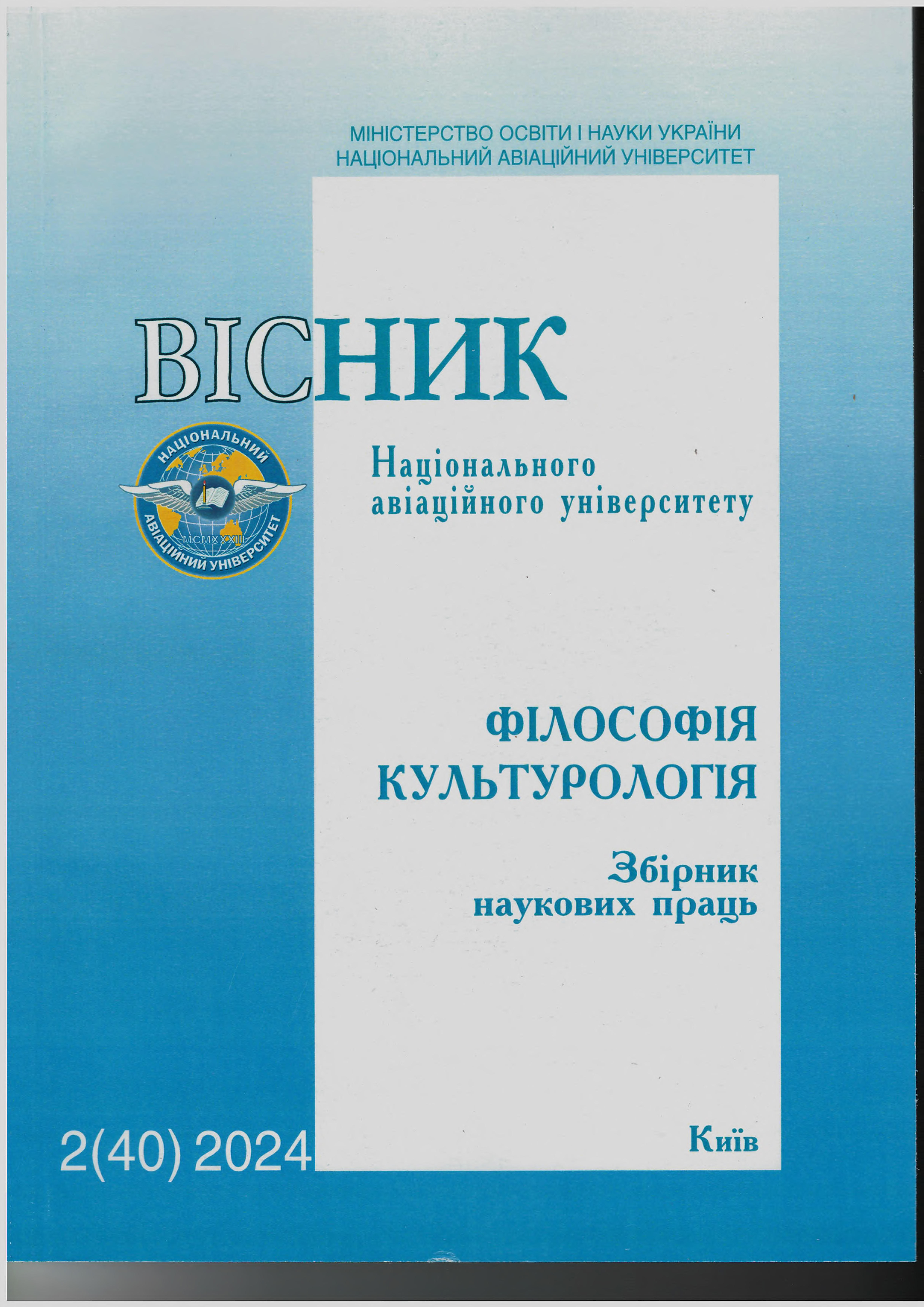PHILOSOPHICAL FOUNDATIONS OF COMMUNICATION CULTURE IN HEALTHCARE
DOI:
https://doi.org/10.18372/2412-2157.40.19256Keywords:
culture of communication, culture of speech, culture of dialogue, communication in healthcare, hermeneutical principlesAbstract
It is shown that the need to rethink the foundations and principles of communication culture is stimulated by changes in the technical means of communication in all spheres of public life, including healthcare. This affects transformations in the language used in communication processes. It is substantiated that fundamental theories are essential for the study of communication and understanding the role of language in these processes. The aim of the study is a complex understanding of the basic philosophical foundations of the formation of a culture of communication and cultural norms of communication in the healthcare sphere. Research methods are conceptual foundations of the philosophy of language, principles of philosophical hermeneutics, general scientific principles of historicism and coherence, method of cultural and semantic analysis, logical methods of justification and argumentation are applied. Research results. Communication in healthcare is a multi-stage and multi-level: communication takes place within the medical community, between doctors and patients, as well as between medical professionals and public authorities, etc. The process of communication is associated with the use of language, and therefore it requires clarification of the meaning of linguistic expressions. Hermeneutic procedures of interpretation and understanding play a facilitative role in the process of communication. Discussion. The problem of communication culture is comprehended by philosophers, scientists in various fields of science, and medical specialists. It is a cross-cutting issue in all spheres of social life, although the form and content of communication processes differ significantly in different social practices. A number of researchers have analyzed views on this issue. Conclusions. The principles and norms that are fundamental to the formation of a culture of communication in the field of health care have been identified. These are principles of formation of linguistic norms of communication; application of moral principles of mutual respect and tolerance; principles of dialogical communication and others.
References
Знаменська М. А., Слабкий Г. О., Знаменська Т. К. Комунікація в охороні здоров’я: монографія. Київ : Укр. ін-т стратег. дослідж. МОЗ України, 2019. 194 с.
Талер Р., Санстейн К. Поштовх. Як допомогти людям зробити правильний вибір. Київ : Наш формат, 2017. 312 с.
Крістева Ю. Полілог. Київ : Юніверс, 2004. 480 с.
Антіпова О. П. Трансформація мовної норми в умовах інформаційного суспільства. Вісник Національного авіаційного університету. 2019. Вип. 1. С. 130–134. (Серія «Філософія. Культурологія»).
Орду К. С. Формування інформаційно-комунікативної компетентності майбутніх сімейних лікарів у професійній підготовці : дис. … д-ра філософії : 015 «Професійна освіта». Одеса, 2021. 318 с.
Шашкова Л. О., Злочевська М. В. Діалогічний вимір гуманітарного знання. Київ : Професіонал, 2011. 176 с.
Васильєва І. В. Філософія релігії та медицини свт. Луки (В. Ф. Войно-Ясенецького). Вісник Національного авіаційного університету. 2018. Вип. 1 (27). С. 5-9. (Серія «Філософія. Культурологія»).
Кебуладзе В. Феноменологія досвіду. К.: ДУХ І ЛІТЕРА, 2011. 280 с.
Роудз Марк. Як розмовляти з ким завгодно. Впевнене спілкування в будь-якій ситуації. К.: Видавни чий дім «Сварог», 2021. 160 с.
Hymes D. H. Communicative competence. In J. B. Pride and J. Holmes (Eds.). Sociolinguistics Selected Readings. 1972. P. 269-293.
Гжегорчик А. Життя як виклик. Вступ до раціоналістичної філософії. Варшава-Львів, 1996. 265 с.
Абисова М. А. Комунікативний потенціал культурних відмінностей в інформаційному суспільстві. Вісник Національного авіаційного університету. Серія: Філософія. Культурологія. Вип. 1 (27). 2018. С. 39-43.
Habermas J. Die Zukunft der menschlichen Natur. Frankfurt am Main: Suhrkamp, 2001.


